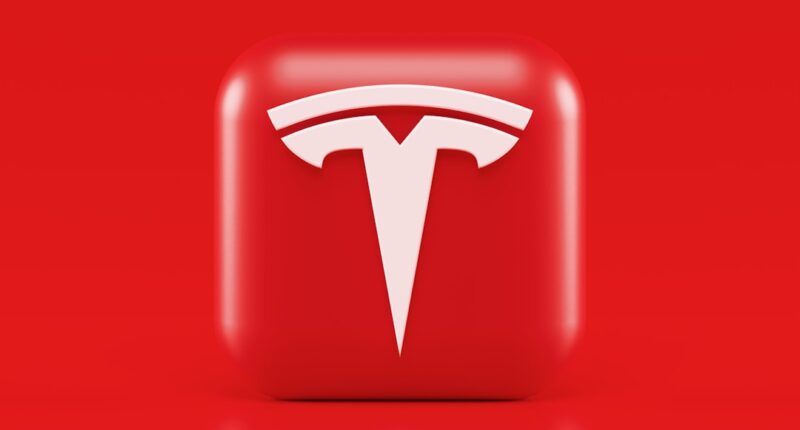MetaMask is a widely-used cryptocurrency wallet and browser extension that enables users to store, send, and receive digital assets, primarily Ethereum and ERC-20 tokens. It functions as an interface for decentralized applications (dApps) on the Ethereum blockchain, allowing users to interact with these applications directly from their web browser. MetaMask offers a user-friendly platform for managing cryptocurrency assets and engaging with the decentralized web, making it accessible to both experienced users and newcomers in the cryptocurrency space.
The extension is compatible with popular web browsers including Chrome, Firefox, and Brave, and is also available as a mobile app for iOS and Android devices. MetaMask integrates seamlessly with web browsers, providing convenient access to cryptocurrency assets during internet browsing sessions. Its intuitive design and comprehensive features have made it a preferred choice for many cryptocurrency users seeking secure asset management.
MetaMask incorporates a key management system that enables users to create and manage multiple Ethereum accounts within a single interface. This functionality is particularly beneficial for individuals and businesses needing to manage separate wallets for various purposes, such as personal savings, business transactions, or investment portfolios. By providing a secure and convenient method for users to interact with the Ethereum blockchain and decentralized applications, MetaMask has become an essential tool in the cryptocurrency ecosystem.
Key Takeaways
- MetaMask is a popular cryptocurrency wallet and gateway to blockchain apps that allows users to manage their digital assets and interact with decentralized applications.
- MetaMask is generally considered safe to use, but users should be cautious of phishing scams and ensure they are downloading the official extension or app from a trusted source.
- MetaMask protects user data and assets through the use of a secure login process, encryption, and the option to set up a password or biometric authentication.
- MetaMask is considered reliable as a wallet due to its open-source nature, regular security audits, and the ability for users to remain in control of their private keys.
- Common concerns and criticisms about MetaMask include potential security vulnerabilities, the need for improved user education on safe practices, and the potential for phishing attacks.
- Tips for using MetaMask securely include enabling two-factor authentication, keeping the software updated, and being cautious of suspicious links or requests for sensitive information.
- Alternatives to MetaMask for cryptocurrency storage include hardware wallets like Ledger or Trezor, desktop wallets like Exodus, and mobile wallets like Trust Wallet.
Is MetaMask safe to use?
One of the most common concerns among cryptocurrency users is the security of their digital assets. Given the prevalence of hacking and phishing attacks in the cryptocurrency space, it’s essential to evaluate the safety of using MetaMask as a wallet. MetaMask employs several security measures to protect user data and assets, including encryption, secure key management, and phishing protection.
MetaMask uses industry-standard encryption to secure user data and private keys, ensuring that sensitive information is protected from unauthorized access. Additionally, MetaMask’s key management system allows users to create and manage multiple Ethereum accounts within the same interface, providing a convenient way to organize and secure their digital assets. Furthermore, MetaMask includes built-in phishing protection to help users avoid malicious websites and scams that attempt to steal their cryptocurrency holdings.
In addition to these security features, MetaMask encourages users to follow best practices for securing their accounts, such as using strong and unique passwords, enabling two-factor authentication, and being cautious of phishing attempts. By taking these precautions and leveraging MetaMask’s security features, users can mitigate the risk of unauthorized access to their cryptocurrency assets and use the wallet safely.
How does MetaMask protect user data and assets?

MetaMask employs several measures to protect user data and assets from unauthorized access and malicious attacks. One of the primary ways that MetaMask ensures the security of user information is through encryption. When users create an Ethereum account or import an existing one into MetaMask, their private keys are encrypted using industry-standard encryption algorithms.
This means that even if an unauthorized party gains access to the user’s device or MetaMask extension, they would not be able to access the private keys without the user’s password. Furthermore, MetaMask’s key management system allows users to create and manage multiple Ethereum accounts within the same interface. Each account is protected by its own set of private keys and can be secured with a unique password.
This provides users with a convenient way to organize and secure their digital assets across different accounts, such as personal savings, business transactions, or investment portfolios. In addition to encryption and key management, MetaMask includes built-in phishing protection to help users avoid malicious websites and scams that attempt to steal their cryptocurrency holdings. The extension warns users when they navigate to a potentially harmful website or encounter a phishing attempt, helping them avoid potential security threats.
By implementing these security measures, MetaMask aims to protect user data and assets from unauthorized access and malicious attacks, providing a secure environment for managing cryptocurrency holdings.
Understanding the reliability of MetaMask as a wallet
When evaluating the reliability of MetaMask as a cryptocurrency wallet, it’s essential to consider its track record, user base, and development team. MetaMask has been in operation since 2016 and has gained a significant user base over the years, demonstrating its reliability as a trusted solution for managing cryptocurrency assets. The wallet has undergone continuous development and improvement, with regular updates and new features being introduced to enhance its functionality and security.
MetaMask is developed by ConsenSys, a leading blockchain technology company with a strong reputation in the cryptocurrency space. ConsenSys has been at the forefront of blockchain innovation and has contributed to the development of numerous decentralized applications and protocols. The company’s involvement in the development of MetaMask adds credibility to the wallet’s reliability and security, as it benefits from ConsenSys’ expertise and resources in blockchain technology.
Furthermore, MetaMask has received positive feedback from its user base, with many individuals and businesses relying on the wallet to store and manage their cryptocurrency assets. The wallet’s popularity and widespread adoption within the cryptocurrency community further attest to its reliability as a trusted solution for securely storing digital assets. Overall, MetaMask’s track record, user base, and development team contribute to its reliability as a cryptocurrency wallet, making it a reputable choice for individuals looking to manage their digital assets securely.
Common concerns and criticisms about MetaMask
While MetaMask has gained widespread popularity as a cryptocurrency wallet and gateway to decentralized applications, it has also faced some common concerns and criticisms from users. One of the primary concerns is related to the security of private keys stored within the MetaMask extension. Since private keys are essential for accessing and managing cryptocurrency assets, there is always a risk of unauthorized access if they are not adequately protected.
While MetaMask employs encryption and key management to secure private keys, some users may still be apprehensive about storing their keys within a browser extension. Another common criticism of MetaMask is its susceptibility to phishing attacks. Phishing is a prevalent threat in the cryptocurrency space, with malicious actors attempting to trick users into revealing their private keys or sensitive information through fake websites or communications.
While MetaMask includes built-in phishing protection to help users avoid these threats, some individuals may still be concerned about the potential risks associated with phishing attacks when using the wallet. Additionally, some users have expressed concerns about the user interface and user experience of MetaMask, citing issues such as complexity, lack of intuitive features, or difficulty in navigating the interface. While MetaMask aims to provide a user-friendly experience for managing cryptocurrency assets and interacting with decentralized applications, there may be room for improvement in addressing these usability concerns.
Despite these common concerns and criticisms, it’s important to note that MetaMask continues to evolve and improve over time, with regular updates and new features being introduced to address user feedback and enhance security. By staying informed about potential risks and best practices for using MetaMask securely, users can mitigate these concerns and make informed decisions about using the wallet for managing their cryptocurrency assets.
Tips for using MetaMask securely

To use MetaMask securely and mitigate potential risks associated with managing cryptocurrency assets, there are several best practices that users can follow. One of the most important tips is to ensure that the device used for accessing MetaMask is secure and free from malware or unauthorized access. This includes keeping the operating system and web browser up to date with the latest security patches, using reputable antivirus software, and avoiding suspicious websites or downloads that could compromise the device’s security.
Another essential tip is to create strong and unique passwords for accessing MetaMask and other accounts associated with cryptocurrency holdings. Using a combination of uppercase and lowercase letters, numbers, and special characters can help create robust passwords that are difficult for unauthorized parties to guess or crack. Additionally, enabling two-factor authentication (2FA) adds an extra layer of security by requiring a secondary verification method, such as a code sent to a mobile device or email address.
It’s also crucial for users to be cautious of phishing attempts when using MetaMask or interacting with cryptocurrency-related websites. Phishing attacks often involve fake websites or communications that attempt to trick users into revealing their private keys or sensitive information. By being vigilant about verifying website URLs, avoiding clicking on suspicious links or attachments, and double-checking communications from unknown sources, users can reduce the risk of falling victim to phishing attacks.
Furthermore, regularly backing up private keys or seed phrases associated with MetaMask accounts is essential for safeguarding against potential data loss or device failure. Storing backups in secure locations such as encrypted USB drives or hardware wallets can provide an additional layer of protection for accessing cryptocurrency assets in case of emergencies. By following these tips for using MetaMask securely, users can enhance the protection of their digital assets and minimize potential risks associated with managing cryptocurrency holdings through the wallet.
Alternatives to MetaMask for cryptocurrency storage
While MetaMask is a popular choice for managing cryptocurrency assets and interacting with decentralized applications on the Ethereum blockchain, there are several alternatives available for individuals seeking alternative solutions for cryptocurrency storage. One notable alternative is MyEtherWallet (MEW), a web-based wallet that allows users to create new Ethereum wallets or access existing ones through an intuitive interface. MEW provides similar functionality to MetaMask in terms of sending, receiving, and storing Ethereum-based tokens while offering additional features such as token swaps and decentralized finance (DeFi) integrations.
Another alternative worth considering is Trust Wallet, a mobile-based cryptocurrency wallet that supports a wide range of digital assets beyond Ethereum-based tokens. Trust Wallet provides a user-friendly interface for managing cryptocurrency holdings on iOS and Android devices while offering features such as staking rewards, decentralized exchange (DEX) integrations, and multi-coin support. For individuals seeking hardware-based solutions for storing cryptocurrency assets securely, hardware wallets such as Ledger Nano S or Trezor offer robust options for offline storage of private keys.
These hardware wallets provide enhanced security by keeping private keys offline in physical devices, reducing the risk of unauthorized access or hacking attempts compared to software-based wallets like MetaMask. Ultimately, choosing an alternative solution for cryptocurrency storage depends on individual preferences, security requirements, and desired features. By exploring different options such as MyEtherWallet, Trust Wallet, or hardware wallets like Ledger Nano S or Trezor, users can find a solution that aligns with their specific needs for securely managing digital assets outside of MetaMask.
FAQs
What is MetaMask?
MetaMask is a popular cryptocurrency wallet and browser extension that allows users to store, send, and receive Ethereum and other ERC-20 tokens. It also enables users to interact with decentralized applications (dApps) on the Ethereum blockchain.
Is MetaMask legit?
Yes, MetaMask is a legitimate and widely used cryptocurrency wallet and browser extension. It has been in operation since 2016 and has gained a strong reputation within the cryptocurrency community.
How secure is MetaMask?
MetaMask is designed with security in mind and offers various features to help protect users’ funds and information. These include encrypted vaults, password protection, and the ability to connect to hardware wallets for added security.
Is MetaMask reliable?
MetaMask has proven to be a reliable platform for storing and managing cryptocurrencies. It has a large user base and is regularly updated to address any security or performance issues.
What are the potential risks of using MetaMask?
As with any online platform, there are potential risks associated with using MetaMask, such as the possibility of phishing attacks, malware, or unauthorized access to a user’s device. It’s important for users to take precautions, such as enabling two-factor authentication and keeping their software up to date, to mitigate these risks.
Does MetaMask have customer support?
Yes, MetaMask provides customer support through its website, which includes a help center with articles and tutorials to assist users with common issues. Users can also reach out to the MetaMask team through their official social media channels.





